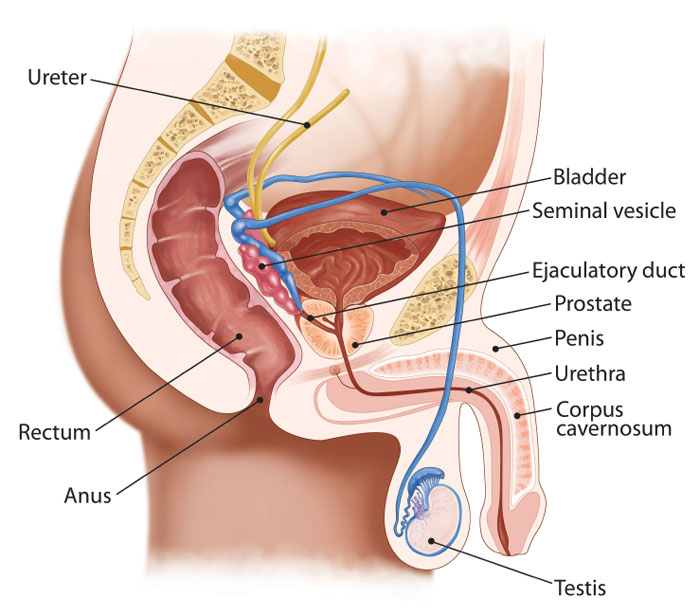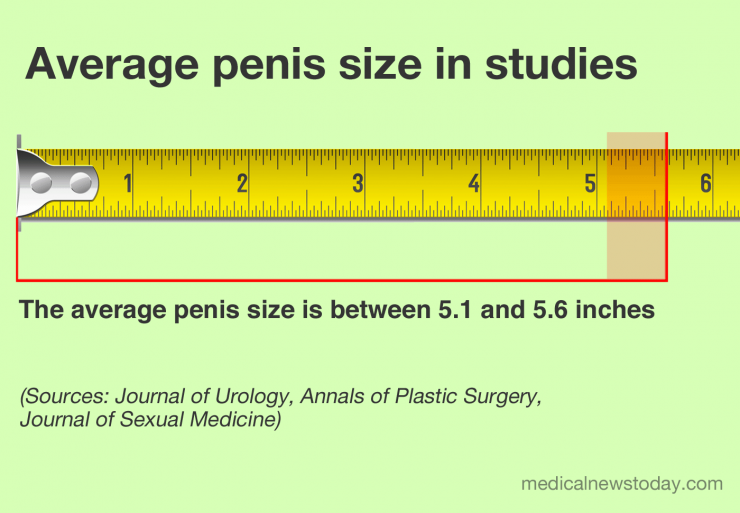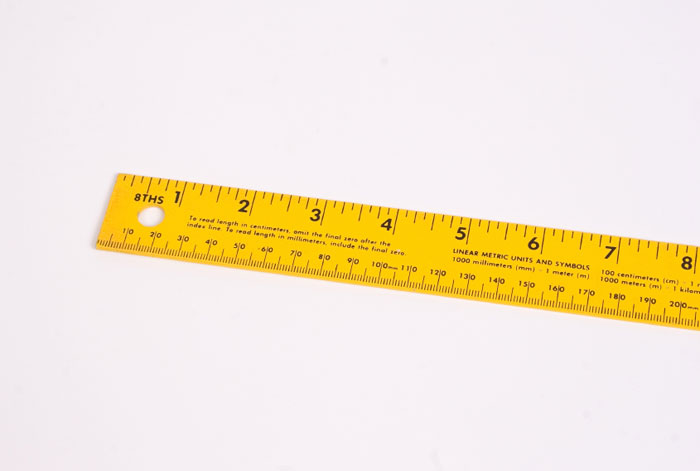We will present you with facts from all the scientific studies done on penis size so that once you have finished reading this article, you will feel content that you have the most accurate answer to the question. And perhaps you will be reassured about your own size or that of your partner's penis.
Published findings are often introduced with background information on men's widespread anxieties about whether or not their penises are big enough, and if sexual partners are going to be satisfied. So what is the truth?
Given the ubiquity of free, easily accessible internet pornography, and the rise in aggressive marketing by companies promising a bigger penis through the use of extenders and enlargers, it is easy to see why the truth about male genital length and girth might have become obscured.
Perhaps it is no surprise, then, that researchers consistently find that men have heightened anxieties about their manhoods.
Fast facts on the average penis size
Here are some key points about the average penis size. More detail and supporting information is in the main article.
When is penis size too small?
 The penis extends back behind the testes - measured lengths do not include this part.
The penis extends back behind the testes - measured lengths do not include this part.
Perhaps the best gauge of what is considered to be a small penis is given by the threshold used by doctors for when penile augmentation may be considered.
Researchers publishing in the Journal of Urology studied the penis sizes of 80 "physically normal" men, measuring penile dimensions before and after drug-induced erections.
After finding average sizes, they concluded:
"Only men with a flaccid length of less than 4 centimeters [1.6 inches], or a stretched or erect length of less than 7.5 centimeters [3 inches] should be considered candidates for penile lengthening."
What is 'normal' or average penis size?
 Many studies have investigated average penis size.
Many studies have investigated average penis size.
In the Journal of Urology study, researchers found the following among the group of 80 men:
The study also found that the size of a man's erect penis was not correlated with the size of his flaccid penis.
This means that men whose penises are different lengths when flaccid may have similarly sized erect penises. There was also no relationship between the men's ages and their penis sizes.
The finding on how much the penis length can 'grow' — on whether you are a 'shower' or a 'grower' — was further supported by a study of 200 Turkish men, in which "flaccid length had little importance in determining erect penile length."
The research to determine average penis size includes a study published in January 2014 that examined over 1,600 American men, although it did not take independent physical measurements.
Instead, the study relied on the men's own measurements of penis size. The reports may be considered fairly reliable, however, since the men were to be given condoms to match their self-reported measurements, meaning that any inaccuracy would have resulted in ill-fitting prophylactics.
This study found the average penis size to be as follows:
The researchers said the self-reported erect penile dimensions were consistent with findings from other studies. Their study added the finding that the precise dimensions of an erection can be influenced by the mode of getting aroused, such as whether a man uses hand stimulation.
To measure penis length, press a ruler into the groin and measure from the base of the penis to the tip.
To measure penis girth, wrap a measuring tape around the widest part of the penis.
 Several different studies have suggested an average penis size of between 5.1 and 5.6 inches.
Several different studies have suggested an average penis size of between 5.1 and 5.6 inches.Penis size - women seem to care less about it than men
Male concern about whether penile size lives up to the desires of females seems to be largely misplaced.
And unfounded worries about inadequacy are not helped by the fact that a man's own view of his penis automatically makes it look smaller to him than to someone else.
Looking down at the penis from above makes it appear smaller, compared with how it looks straight on, or from the side.
Seeing one's own penis from this perspective and perhaps comparing it with other men's appendages from a different perspective, may, therefore, reinforce false ideas of penis size. But do women have a more reliable perception?
One study, published in the British Journal of Urology International, suggested that while the majority of women, some 85 percent, were satisfied with the size and proportion of their partner's penis, men were less sure of themselves.
Almost half of men in the study (45 percent) believed they had a small penis, yet the researchers reported that small penis size was actually rare.
Some 170 women answered questionnaires in another study, which found that while they attached some importance to penis size, it was only of "substantial" importance to a "clear minority" of the women.
While most of men's worries about penis size centre on the length, women are more interested in width, according to one study.
The study of 50 sexually active undergraduate women reported that for a large majority — 9 out of 10 of the women — penis width was more important to sexual satisfaction than penis length.
Women don't want men with big penises
A study published in the open-access journal PLOS ONE in November 2015 took the novel approach of asking women to show their penis size preferences with the use of 3D printed models of 33 different dimensions.
![[3D-printed penis sizes]](https://cdn-prod.medicalnewstoday.com/content/images/articles/271/271647/3d-printed-penises.jpg) The women were asked to choose between 33 differently sized 3D-printed 'penises' - including the examples shown. The largest in the set was A, while D was the smallest; they were blue for racial neutrality.
The women were asked to choose between 33 differently sized 3D-printed 'penises' - including the examples shown. The largest in the set was A, while D was the smallest; they were blue for racial neutrality.Image: Nicole Prause et al.
The sizes had been printed across a range from 4 inches to 8.5 inches in length, and from 2.5 inches to 7.0 inches in circumference, based on previous studies giving an average American penis size when erect of 6 inches (15.2 cm) long with a girth of 5 inches (12.7 cm).
The 3D-printed shafts were in blue plastic so as not to suggest any particular race that might prejudice the women's ideas of average size.
The 75 women indicating size preferences from the 33 blue models chose slightly differently depending on the kind of relationship they were thinking about (and in any case showed they desired a size that turned out to be only slightly above the averages found across studies):
More penis measurements
A number of different studies have sought to determine an average penis size. One published in 2001 took measurements of 3,300 young Italian men aged between 17 and 19 years.
It found the median average length of flaccid penises was 9 centimeters (3.5 inches), and the flaccid circumference (at the middle of the shaft) was 10 centimeters (3.9 inches).
Another study examined a different population, of 301 physically normal Indian men, and sought to compare its results with size findings in other countries.
The results, the authors of the 2007 study said, "will help in counseling the patients worried about the penile size and seeking penis enlargement surgery."
The findings, published in Nature, included a table that listed previous findings on penis dimensions around the world. Click here to see the table.
 Research studies have measured penis sizes and found an average - the typical erect penis would fit well within the range shown on this ruler.
Research studies have measured penis sizes and found an average - the typical erect penis would fit well within the range shown on this ruler.
Of the 16 studies they cited, from various countries, the earliest was carried out over a hundred years ago and published in 1899.
They all arrived at similar average penis lengths:
Heightened concerns, 'misguided' desires for enlargement
The authors of the study from India wrote that the definition of normal penile size was of "considerable interest" as there was a "steady increase in the number of people complaining of 'short penis' and seeking penile enlargement procedures."
Other research has suggested that most men who seek surgery to lengthen their penis have an overestimated view of what a normal penis size is.
In the study of 67 men complaining of a short penis, none was, in fact, found to be severely short. The authors said there was an increasing number of men seeking surgery to lengthen their penis.
Only a small effect of obesity and age on erect penis size
In 2015, researchers in Saudi Arabia published the results of a retrospective cohort study of 778 men with an average age of 43.7 (ranging from 20 to 82 years) who attended urological outpatient clinics in Saudi Arabia.
Men were excluded from the study if they were under 18 years old, presented with a complaint of small or short penis, Peyronie's disease, congenital curvature, clinical hypogonadism, previous penile surgery or trauma, or a combination of any of these.
After medically inducing an erection the researchers took measurements and established an average:
The researchers also measured the men's body-mass index (BMI), which increases with obesity. There was a weak correlation between greater BMI and shorter erect penile length when this was measured from the skin over the pubic area, but not when the measurement was made from the bone to the tip.
This suggests that the penis would appear to be shorter when there is more fat under the skin at the visible base of the penis.
This study also showed a weak correlation with increasing age for erect penis dimensions.
However, the authors noted that slight decreases in size may be of limited concern to "aging men" - they found "the difference between men of 70 and 20 was less than a centimeter."